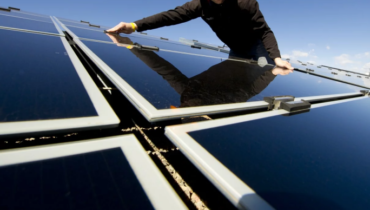When it comes to setting up a solar panel system, the inverter plays a crucial role. The inverter is responsible for converting the direct current (DC) energy produced by the solar panels into usable alternating current (AC) energy that can power your home or business. As such, choosing the right inverter is essential to ensure your system operates effectively and efficiently.
Table of Contents
Types of Inverters for Solar Panels
There are three primary types of inverters used in solar panel systems: string inverters, microinverters, and power optimizers. Each type has its own advantages and disadvantages, and the best option for your system will depend on factors such as the size of your system, your budget, and your specific energy needs.
String Inverters
String inverters are the most common type of inverter used in solar panel systems. They are relatively inexpensive and efficient, making them a popular choice for both residential and commercial applications. With string inverters, multiple solar panels are connected in a series or “string,” and the inverter converts the DC energy produced by the entire string into AC energy for use in your home or business.
Microinverters
Microinverters are an alternative to string inverters, and they offer several advantages. With microinverters, each solar panel has its own individual inverter, which allows for greater flexibility in the design of your solar panel system. Additionally, because each panel has its own inverter, the performance of one panel does not impact the performance of the entire system.
Power Optimizers
Power optimizers are a relatively new technology in the world of solar panel inverters. Like microinverters, power optimizers are installed on each individual solar panel, allowing for greater flexibility in system design. However, unlike microinverters, power optimizers do not convert DC energy to AC energy. Instead, they optimize the DC energy output of each panel, which is then sent to a central string inverter for conversion to AC energy.
Considerations When Choosing an Inverter
When choosing an inverter for your solar panel system, there are several important considerations to keep in mind. These include:
- System size: The size of your system will impact the type and size of inverter you need.
- Efficiency: Look for an inverter with a high efficiency rating to ensure that your system operates as efficiently as possible.
- Durability: Your inverter will be exposed to the elements, so choose one that is built to last.
- Warranty: Look for an inverter with a strong warranty to protect your investment.
Working with a Professional
Choosing the right inverter for your solar panel system can be a complex process, and it is often best to work with a professional who can guide you through the decision-making process. A professional solar panel installer can assess your energy needs, recommend the best inverter for your system, and ensure that your system is installed safely and effectively.
Final Thoughts
Selecting the right inverter for your solar panel system is an important decision that will impact the performance and efficiency of your system for years to come. By considering factors such as system size, efficiency, durability, and warranty, and working with a professional installer, you can ensure that your solar panel system operates at its full potential and provides you with reliable, cost-effective energy for years to come.

